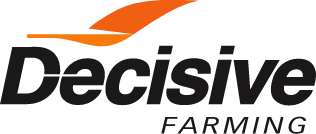Between planning, equipment, storage, commodity prices, staffing, weather (and more!), farmers are responsible for managing assets, risk and an incredible amount of information that has a direct impact on the success of their operation.
Over the years, many farmers have adopted new processes to adapt to an ever-changing agricultural landscape; no-till farming, advances in crop protection and the inclusion of drought-tolerant crops allow farmers to grow more with less while adhering to industry regulations. Precision agriculture uses technology to produce crops more efficiently through the use of GPS, drones, sensors and precision machinery.
We know that farmers are becoming increasingly friendly with the use of technology to support their operation, however, only 55% of Canadian* and 65% of US farmers** are using farm management software solutions. That means that the rest are probably still using notebooks and spreadsheets for record keeping, and using their smartphone for Twitter and weather updates.
The most common reason farmers surveyed had for not adopting software? Their current methods were listed as “sufficient*.”
Why use farm management software
It’s one thing to keep accurate (sufficient) farm records, and another thing to empower this information to access operational insights in an instant. Farmers today are using farm management software “to make more informed decisions, to optimize crop planning and to determine which practices/decisions are most profitable.*”
While technology often sounds complicated, great farm management solutions put the farmer at the centre, make it easy to use and accessible for all. Think about the first time you used a smartphone or the first time you navigated social media – it takes a little time, but the best technology exceeds user adoption and engagement goals (and if you don’t use it, the software won’t survive).
Farmers are using these features most often when accessing their software solution*:
Want to learn more about the benefits? Read our blog article 5 Key Advantages of Digitizing Your Farm Records.
The Most Common Objection: Data Ownership & Protection
The primary objection farmers have to adopting farm management software is concerns over data security*, specifically that government or regulatory agencies will access agronomic data or that companies may access and profit from it.
Farmers have questions around privacy, proprietary rights and how the ag industry balances a farmer’s need for confidentiality, the economics at play and the public good. The information produced on a farm is valuable in many ways, and therefore it’s in high demand. It’s understandable that farmers might have concerns around the ways ag data might be used, shared and even sold, especially when it has the potential to affect the bottom line.
We understand that farmers are skeptical when adopting new technology, especially those platforms that track, manage and optimize your operations. We encourage you to choose a provider who is transparent and puts your mind at ease.
Where We Stand
As part of the TELUS Agriculture family, our approach to data transparency and privacy continues to guarantee that farmers own their information and are empowered to choose who can access it. Strict guidelines for data security are in place to protect farm data.
How else can you protect your data when using a farm management solution?
The best action to take is to be proactive and stay informed. Here are some considerations to keep in mind:
The two main goals when reviewing data security: to understand how the agreement protects the users privacy and how it protects data ownership. Look to understand that the contract describes the type(s) of data being collected; how control of farm data is addressed; and, that the contract states whether the data might be accessed, sold or shared.
Try Farm Management Software
Ready to integrate a farm management solution within your operation? Let’s get to work. Together. Check out our website (www.decisivefarming.com) or contact your local Decisive Farming representative.
*“Dynamics of Data in Ag.” Stratus Ag Research, CDN20, 2020.
**“Dynamics of Data in Ag.” Stratus Ag Research, USA20, 2020.



